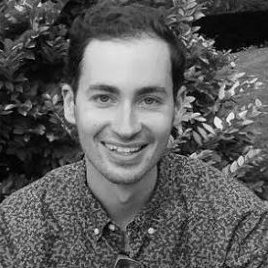History student reflects on attending CIRTL Teaching Institute

Sean Cosgrove, History PhD candidate
June 15, 2018
From 6-8 June 2018, Johns Hopkins University held a Teaching Institute to help graduate students and early-career researchers better navigate the world of college-level teaching. Sessions focused on a combination of professional development, with classes on creating syllabi and preparing teaching statements, and practical teaching skills, by introducing us to a variety of evidenced-based learning practices designed to better engage students, increase knowledge retention, and enable students to more usefully apply this knowledge in new or unfamiliar environments. Topics ranged from active learning strategies, to best practices in assessment or grading, backwards design, and creating inclusive classrooms. Instructors were crucial in modeling these practices over the course of the Institute.
In order to ensure we were able to actively engage with this material as well, participants were to break into groups to create a short lesson for the rest of the cohort employing these techniques (the “Teachable Tidbit”). Having attended the Institute offered on the medical campus, most of the participants were from the harder sciences or medical school, and many of the projects were heavily science-based. Presentations covered the mechanics of muscle movement to the causes of ALS (also known as Lou Gehrig’s disease), as well as inclusion in higher education and the origins of linguistic variations in the United States.
While the range of materials and resources provided by the Institute were invaluable and will undoubtedly be useful in producing teaching materials as well as materials for the job market, one key takeaway for me as a graduate student in the Humanities and Social Sciences came from this variety of students who participated. As someone with little exposure to medical students, the different emphases in our respective fields on teaching content knowledge versus non-content knowledge has made me more aware of the ways in which I, in my own teaching, privilege non-content knowledge.
Reflecting on the lessons gained from the Institute it seems to me that there are certainly disciplinary reasons for such a divide, but that this disconnect may also stem, in part, from my unfamiliarity with the many different techniques that educators (scientists, often) employ to ensure knowledge retention. The presenters (overwhelmingly medical school faculty) employ clickers, for example, as a way of testing student knowledge (i.e., which of these answers is correct), but also as a means of getting students to work through problems (i.e., to challenge them to think about the logic of the problem collectively). As someone who is less concerned with students walking away with “correct answers,” having these tools identified as discussion starters as well has allowed me to consider how they might prove useful for ensuring students learn the events, dates, or places I often de-emphasize in my teaching, while also reinforcing the critical thinking skills I privilege. As an assessment tool clickers may be less effective for me but, as a means of engaging students, my history classes might benefit from the interactivity.
Overall, the Institute was an invaluable opportunity to discuss the many teaching practices and policies that we have already encountered or would soon encounter as we begin our educational careers. The diversity of participants – both in academic background as well as institutional background – fostered robust discussion that relied on vastly different forms of experience and produced more learning opportunities than can be contained here. With engaged faculty mentors, the JHU Teaching Institute is something that could certainly benefit graduate students across Cornell University, both in their ability to become better educators but also to better compete on the job market.
Sean Cosgrove is a Ph.D. candidate in History at Cornell University. He received a travel grant to attend this CIRTL Network teaching institute held at partnering institution Johns Hopkins University.


